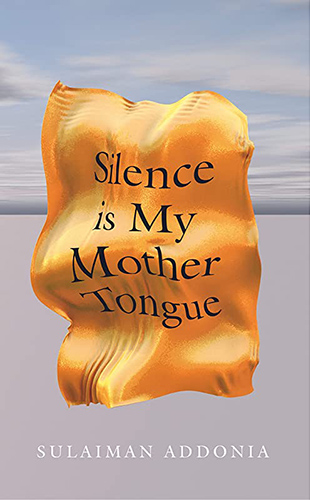

Saba and Hagos are teenage siblings from Eritrea. Because Hagos is disabled (he’s mute), he was taken out of school and instead his sister Saba was given the opportunity to get an education. They’ve swapped gender roles, which suits them both - Saba is loud and ambitious and Hagos has taken over the care of the household. But the world around them is a lot less pleased with this than they are and they are constantly faced with the pressure to assume traditional gender roles.
This pressure is exacerbated when war forces them to leave their country and move to a Sudanese refugee camp, a hermetic environment where time seems to stand still, tensions are heightened and the community elders are determined to maintain everyone’s morality.
The novel deals with their everyday lives in the camp as well as with their teenage search for identity and purpose, and their exploration of sexuality.
Addonia knows what story he wants to tell and which literary devices to use but he seems unable to trust his readers - a large part of this book is spent explaining his own messages and metaphors.
For example, there is a scene in which a young woman is put on trial for having slept with a married man. He's not tried for adultery or extramarital relations, it's all her fault for having "seduced" him. She's found guilty, her reputation is ruined and as a punishment she has to carry the man ("her sin") around on her back.
Year of publication:
2018
Country of publication:
UK
Page count:
208
Content note:
CSA
Would I recommend this book?
Yes, if you can bear unsubtle prose
It's a clear, powerful scene of injustice and misogyny. But for some reason, Addonia can't leave it at that and instead concludes it with: “Girls [...] are used to carrying [...] firewood, water, [...] their brothers and sisters, mothers and fathers, as well as themselves and their own sorrows. No amount of weight can crush a girl.”
Feminism is his weakest point when it comes to this habit - so many characters exist solely to speak in either sexist or girl power aphorisms (“I am a man of my time, and in our time, we treated women like goddesses,” to which a woman responds, “Just treat us like human beings [...] and that would solve the world's problems”). But this habit extends to everything else, too. Every time he uses a metaphor or has characters speak to each other with subtlety or in code; every engaging and clever scene is immediately explained. It feels condescending, and - even worse - it makes the book boring because there is nothing left to engage and challenge the reader.
Addonia has written about the pressure by publishers to simplify and sanitise his book for a Western audience. He says he found a more understanding publisher in the end but maybe some of that pressure stayed with him - or maybe his new editor was too lenient. There is a brilliant novel in there, but it's weighed down by "characters [...] summarizing the themes of the novel to one another" and would have significantly benefited from more editing.
Queerness is too stigmatised to openly talk about (“That man told me my son is… I can’t even say it.”) which leaves at least that part of the story clever and subtle. It’s not subtext in any way, but it’s not reduced to inspirational quotes like the feminism in the novel is, making it a lot more interesting and nuanced.
Both of the siblings are queer and Seba is explicitly bisexual. Her exploration of sex with girls is portrayed with a very believable dose of denial and trying to justify to herself why it doesn’t actually stem from her attraction to women.
For example, the first time we see her sleep with a girl, she’s convinced herself that it’s not her who’s attracted to the girl - even though she very clearly is - it’s her brother. She overhears people pitying Hagos because they think that no matter how handsome he is, no girl will ever want a disabled husband and therefore he will never experience love. Since the siblings have already swapped their places in life, Saba decides it’s her duty to experience sex with this girl “for Hagos”. It’s incredible mental gymnastics - entertaining and fully realistic.
Brilliant aspects like this made Silence is My Mother Tongue a frustrating read for me - there are moments of greatness and a lot of potential in there, there is a strong story and layers of symbolism and I wish they were given room to breathe so I could fully enjoy them on their own without constantly having their meaning explained to me.
